Regrets of living a Nomadic life
“Do you any regrets about having chosen to live a Nomadic life?” It’s a question we were asked recently. The question was brought up by a Canadian acquaintance who had her own dreams about living the same life. She suddenly had cold feet.
It made us reflect on our own decisions.
We were 45 years old. I was newly unemployed, Lissette had a marketing job that she could continue doing remotely. My condo was paid off and I would rent it out while travelling. Neither of us had close family in Montreal except for my son who was starting university. We had friends…but they were friends we would see every 3 months or so. They wouldn’t miss us.
Leaving Canada to travel had been a dream for many years. For 20 years I had worked in finance, a great job with nice people. Life was comfortable but also boring and unchallenging. We lived for our vacations and we saved and planned for the day when we felt secure enough to make the leap.
————————–
It all led to July of 2014. We had put all our stuff in storage and found tenants for the condo. That last month in Montreal we had rented our first Airbnb apartment a few blocks away (our first Airbnb apartment! Over the next 6 years we would average over 300 nights a year in Airbnb apartments).
We’ll never forget the evening in early July when we boarded an Air Transat plane for Prague. Even today I wish we could have bottled the feeling that we had that night. It was the culmination of years of planning and months of packing, cleaning and getting paperwork in order. Suddenly there was nothing but what we had in our suitcases and backpacks. Stress was replaced by relief and excitement.
To create a visually stimulating mood board click https://create.vista.com/
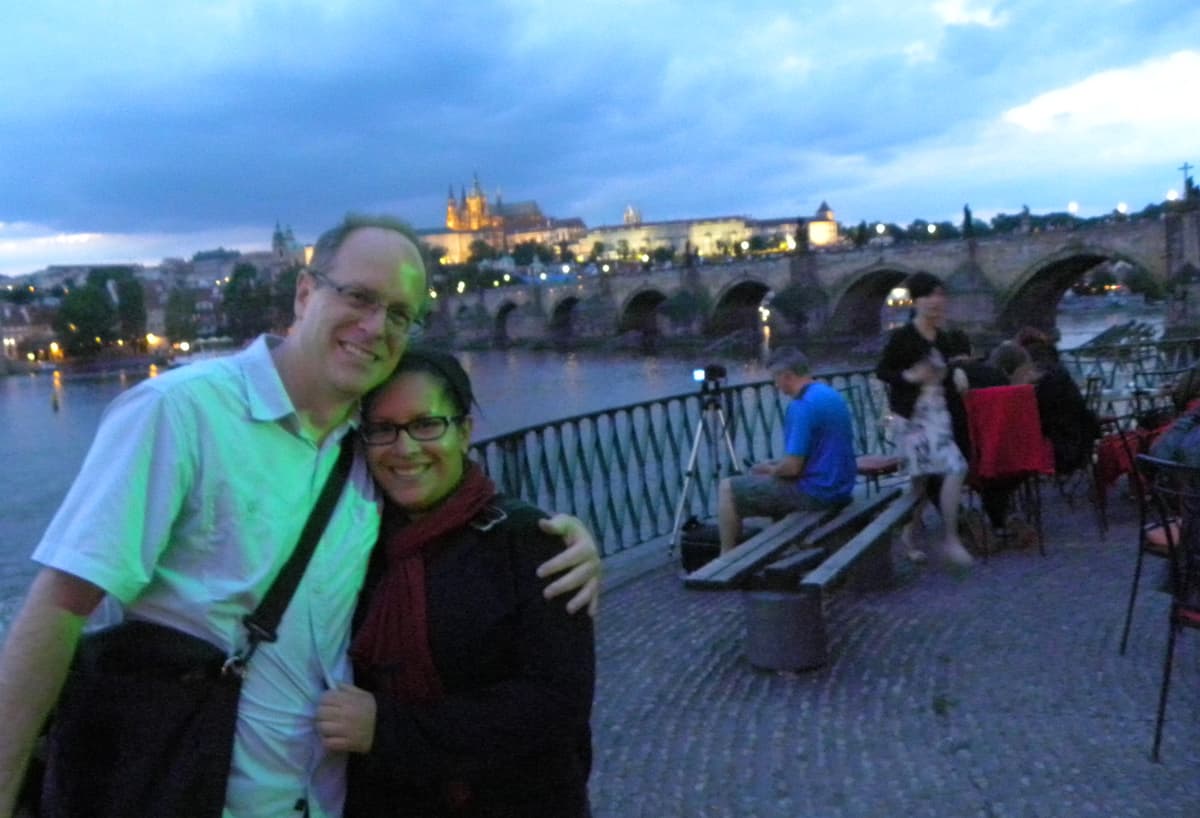
We were slow adapting to our new nomad lifestyle, especially those first few months. Our priority was settling in; to our apartment in Prague ($500 US/month in Prague’s suburbs, a sublet from a friend of a friend) and to Lissette’s new work schedule (still 9 to 5 Montreal time). On weekends we would explore Prague or have weekend trips around the Czech Republic. We would sit in a café and be as happy as pigs in shit. And between Lissette’s job, my rental income, and the low cost of living we were saving tons of money.
There was never a moment of regret.
By year 2 we had visited many new places (Thailand, Italy, Romania, Croatia Serbia, Hungary) as well as some of the places on our “wish” list (like South Africa and Japan). The great thing about nomad travel is the flexibility: we would choose where to go based on how we were feeling about our finances. Feeling good? Spend a month in Germany. Markets bad and investments down? Spend 3 months in Thailand or Ukraine (as we did in 2018/2019).
We’ve had people say to us “you must be millionaires travelling the way you do”. The truth is that our average monthly costs were less than when we lived in Canada. And the flexibility and ability to adapt to circumstances (because of the way we travelled) was the reason for all that.
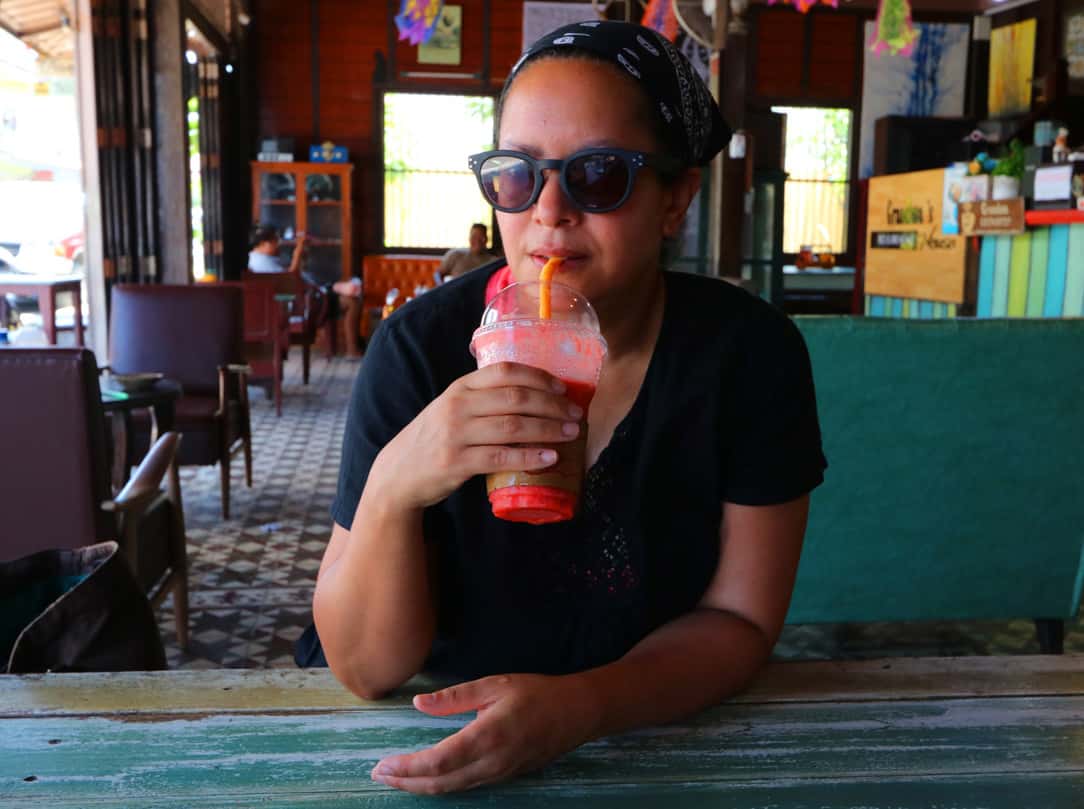
Things we learned travelling as nomads
- Travelling full-time as a couple is the ultimate relationship test. Even if you’ve been married 10 years, chances are you haven’t spent 24/7 with your partner. What works for us? 1) we’re best friends first, 2) we’re usually on the same beat about how we feel about a place and people 3) we can live in a tight space and have our independence 4) we complement each other. This last point is important. Lissette, for example, helps me when I get agitated. Bank machines, computers, SIM cards, and reading instructions are things that sometimes get me crazy. She takes over those little things. In turn I help her with stuff she’s not good at, like anything financial or having to do with logistics. I organize everything having to do with travel. I handle laundry and cooking while she works. I hold her hand when we walk down the street because Lissette’s biggest fears are stray dogs and uneven sidewalks. In short: we complement each other and can accept each other with a sense of humour. I think these things are the single most important components in successfully travelling with someone.
- 3 Months somewhere is the maximum we can be somewhere. Then we start itching to move on.
- Storing “stuff”. Our biggest mistake was storing our stuff in Montreal. If there’s a big tip I can give anyone: get rid of your “stuff”. Originally we stored our things because we wondered if we would get tired of full-time travel after a year. It’s a mistake we would repeat. In 2017 we knew we wouldn’t come back to Montreal and I came back to sell the condo. But we shipped our stuff to Croatia where we had settled for a year (we thought at the time it would be good to have a base somewhere in Europe). When that didn’t work out, it was put back in storage in Zagreb while we went back to travelling. Then, in 2020 when we decided to settle down in Spain, we had our stuff trucked to Spain. Massive, massive mistake. It was only last year (2023) that we started getting rid of everything. We’re finally becoming minimalists. A big regret is all the trouble and expense we’ve put ourselves through.
A great quote someone forwarded us last week: “Simplify. Simplify. Being content with little is the ultimate civil disobedience in modern times. It loses the grip society has over us.” Henry David Thoreau
- Full-time travel is easy. The hardest part of full-time travel is the bureaucracy back home. Things like banking and getting around non-resident rules, taxes, health care, not having a fixed address or telephone number. Things have gotten easier in many ways over the last 10 years but there’s always a new twist on an old problem. But really, full-time travel itself is easy and liberating. The “system” however is purposely complicated for people (like nomads who don’t conform to the norm). Another tip: if you have good friends and family, cultivate those relationships. Use them as a fixed address, as a telephone number, as a place to keep important documents.
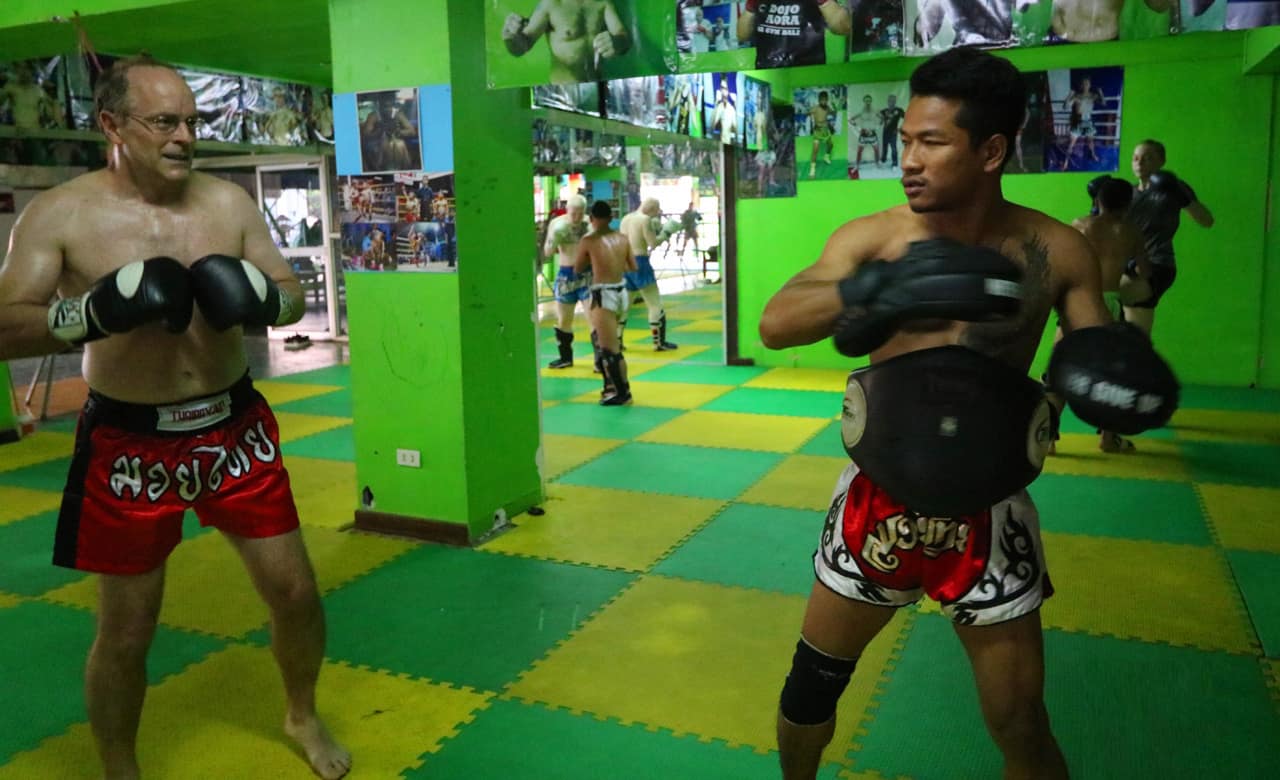
The benefits of Nomad life
I can’t begin to describe all the great things that have come from having chosen to live this lifestyle.
- We’ve been to so many places in the world and have seen them in more than the usual eyes of a tourist. We’ve spent weeks or months in places. Sometimes it’s made us fall in love with a place, sometimes it’s made us despise a place. But you definitely come to know a place.
- Travel has made us more confident. I had done a lot of travelling but travelling full-time and living in many places outside the “tourist bubble” was in the beginning sometimes intimidating. During that first stay in Prague we stayed far outside the center in a working-class neighbourhood where nobody spoke English. We felt like fish out of water. I remember the first time going to the grocery store and having an old lady look at me with hate in her eyes for having inadvertently gotten between her and the vegetable stand. There was a cashier, the only man, who barked at me for some reason I never understood (we would call him the “Checkout Nazi”). Everybody was glum and nasty. At that time I’ll admit it bothered me. Now I don’t care. You learn when you travel that there are nice people everywhere just as there are jerks everywhere. You smile at the nice people, you ignore the ones that are not so nice. Travel is a crash course in dealing with humanity.
- Related to the above: there is almost nothing that gives me satisfaction like the ability to find our way around in a foreign city. Once you’ve figured out how to take the metro in Tokyo, Mexico City or Rome (and get to your final destination), you feel a great sense of accomplishment. When you can figure out all the everyday stuff, that’s when you feel you’ve really gotten to “know” a place.
- We’ve met so many people during our travels and many of them have touched us in different ways. In Montreal we went to work, did our grocery shopping, maybe went to the gym, then home. You’d see the same faces and have the same interactions. Travel opens you up to different people and lets you see their lives. Once you’ve spent 3 months in a country it marks you. We always, for example, think of the different people we knew at our favorite gym in Lviv (Ukraine). We have an attachment to the country that we would never have had we never spent so much time there.
- Never boring, never routine. It doesn’t mean that it’s always great – but you won’t get bored being a nomad.
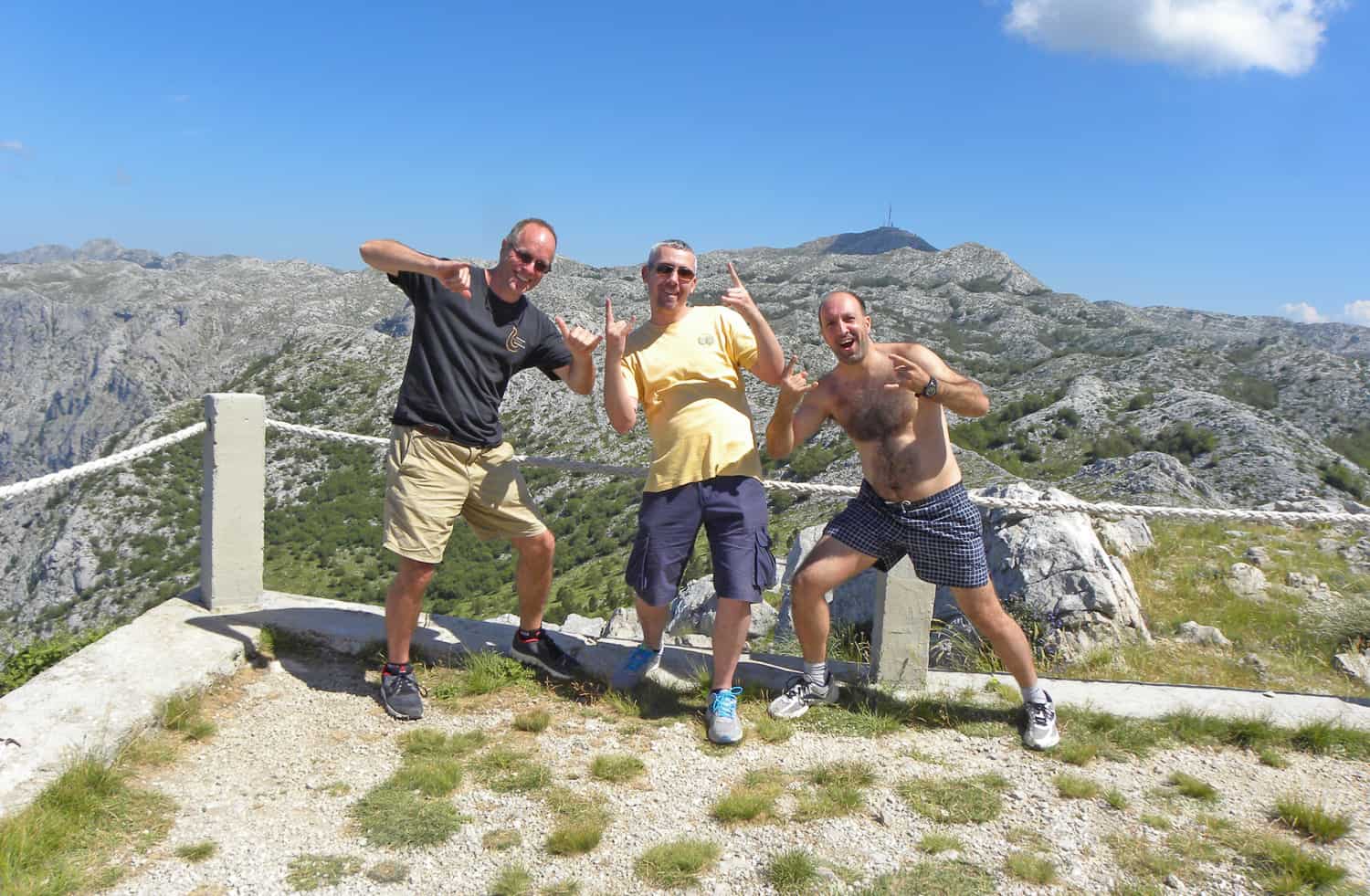
Back to “Regrets”
Sure, we have some regrets and miss some things from home.
We miss Indian food and watching hockey games on Saturday nights.
We miss the big pay checks from when we were both working.
But that’s about it.
We both agree that our biggest regret is that we didn’t/couldn’t start our nomadic lifestyle earlier. Considering that we started in our 40’s I think we did pretty good.
But there is one thing that would have been our biggest lifetime regret: it would have been to never take the leap. And that’s what I would tell anyone getting cold feet about living the nomad life.

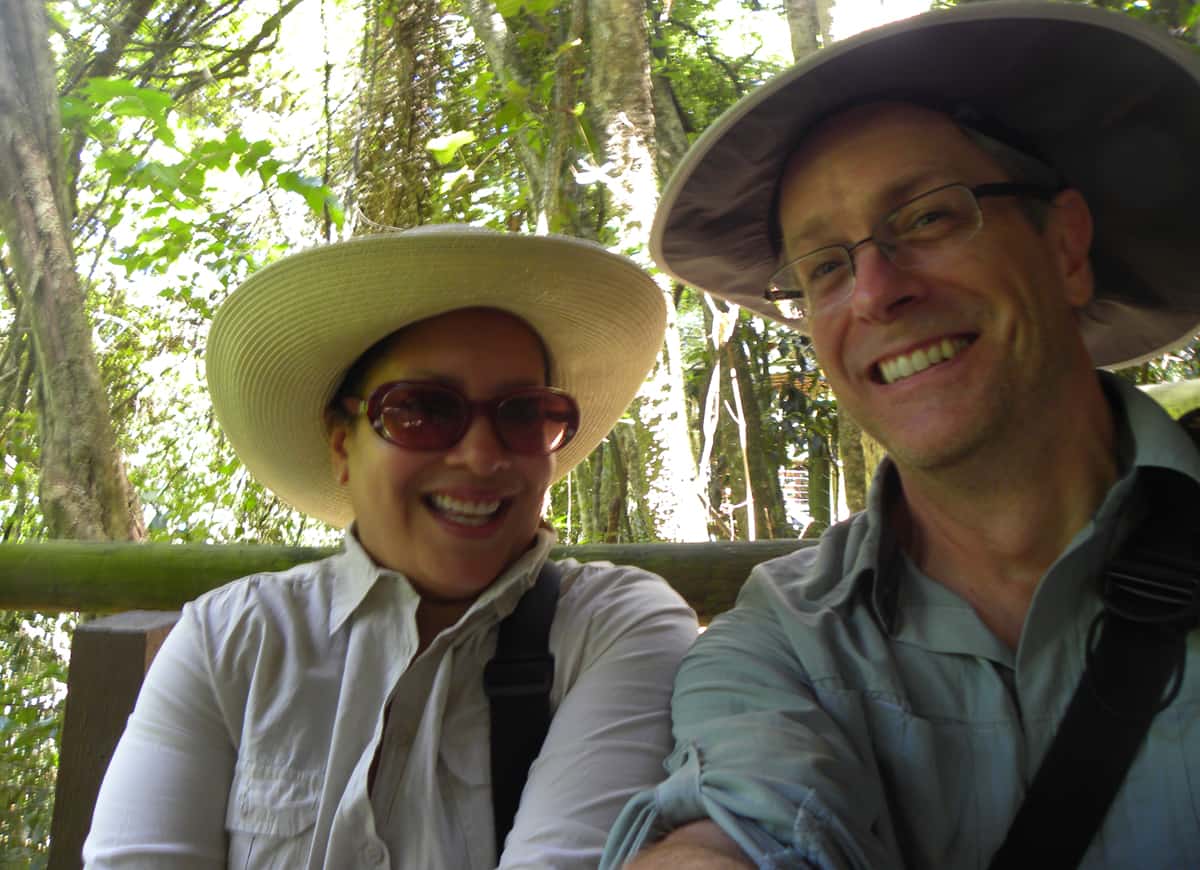

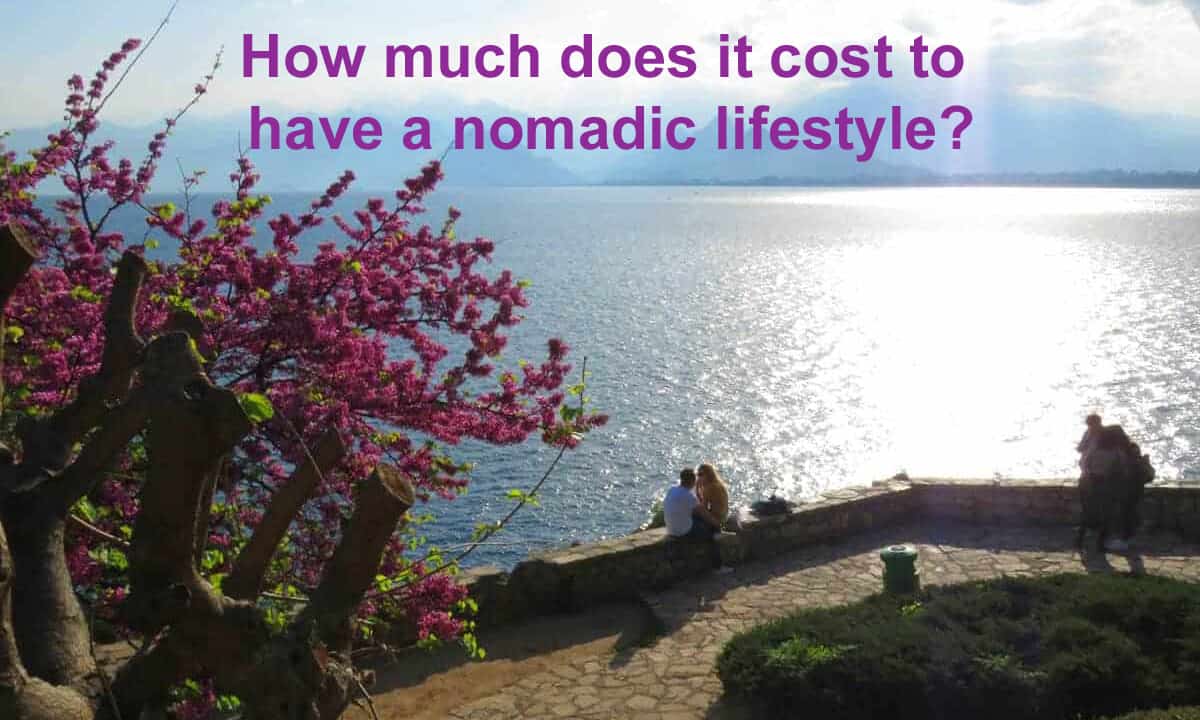
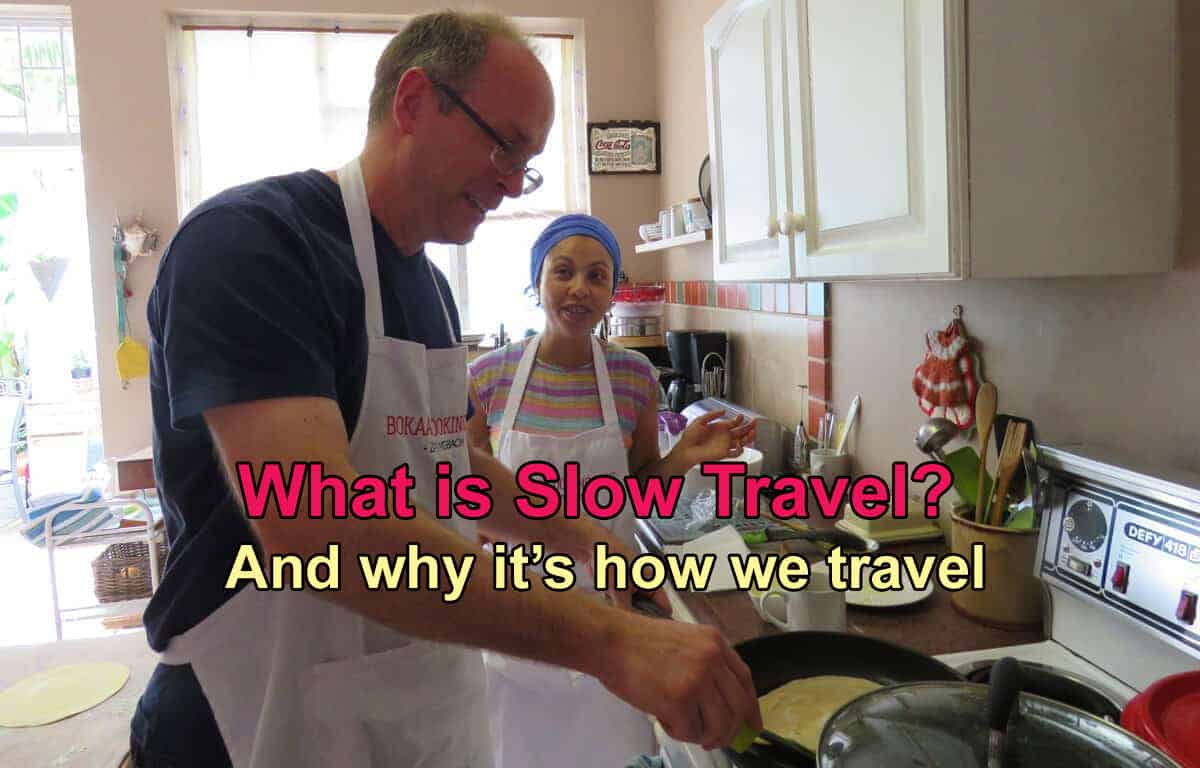
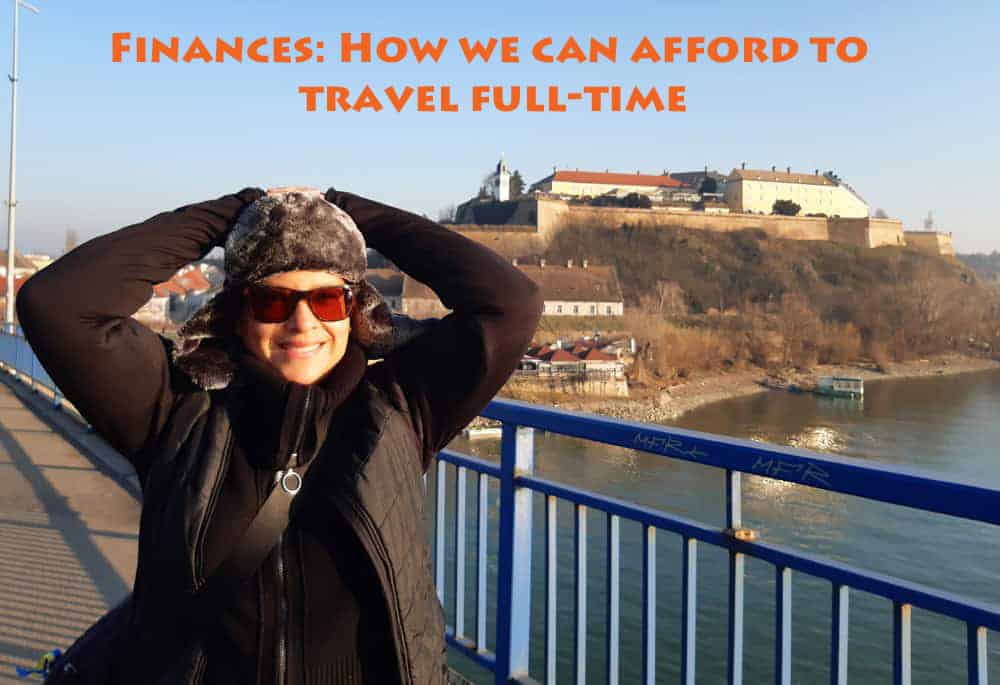
I couldn’t agree more. We’ve taken multiple long term sabbaticals, and now are just over a year into our indefinite long-term travels, and I can’t think of a single regret. I’ll agree with the above commenter about it being harder to maintain those significant relationships from home, but also we have made some wonderful friends while traveling, and I wouldn’t want to trade those away either. Life is all about balance, and change, and there is almost never a right or a wrong answer, just the answer that you choose.
Nice post, I haven’t lived the full nomadic life but am financially independent and have travelled quite a lot and sometimes lived in foreign cities for a couple of months at a time. The upsides of this lifestyle are pretty clear (you capture them well) and I would recommend most people to try it out, but I would add two downsides:
1. The feeling of not being useful to society or other people but being a bit of a leech, not contributing by working or volunteering while everyday using the services of others (waitresses, drivers, shop assistants, cleaning personal, doctors etc etc). To me this leaves a bitter taste, especially the longer one lives such a life. There is a certain dissatisfaction in taking much more than what one gives/provides back, aside from the moral dimension of the issue.
2. The lack of a stable set of friends which one interacts with over many years, something that cannot be fully replaced by transient acquaintances and “local friends”.
I feel like the movie Lost in Translation captures the emotional side of these two downsides pretty well. It would be interesting to hear your reflections on this…
Hey, are you calling us “leeches”? 🙂 Waitresses, drivers, shop assistants, doctors etc…are we not paying for these services like anyone else would in society? I don’t think we’re taking more than we’re giving back, we’re in fact paying taxes back in Canada while doing the same in Spain and having to pay for private health insurance.
2nd part – yes. Totally agree, 100%.
Lost in Translation perfectly describes our “living” experience in a few places, partly Thailand but mostly Japan. I can understand why they chose Japan for that movie because everything is so different, so odd. Very nice people who really do their best to help you out as a foreigner. Heartwarming. But as far as applying “lost in translation” to Nomadic life I don’t really understand…for the most part we feel pretty much at home wherever we’ve based ourselves (well, after the initial break-in period. Maybe that’s what you mean).
Thanks for the comment RJA!
The feeling of being a leech comes from my own life, since I’ve made most of my money in the stock market rather than from working. Even if I pay for the services I use I can’t escape the feeling that it’s wrong. I spend my days relaxing at the pool – literally or metaphorically – while others clean my towels and bring me the drinks. The question “What would happen if everyone lived like you?” haunts me, since the answer is “Society would break down”. Not everyone can travel full time. (The same goes for emissions if one uses airlines a lot obviously).
LIT portrays a very “alienated” existence where you have no real connection to the place you are. But I think it also captures something about not having a role in society, no stable connections/roots/ties, which to me seems a risk when living a full time nomadic lifestyle. I am sure one can lessen this feeling by becoming more involved in the local community, but it is a challenge nonetheless. There is not question that the nomadic life can be great, but I wanted to add to the downsides since they are perhaps less obvious and should be acknowledged (if nothing else so that one can plan how to handle them).
To anyone interested in these type of questions I would recommend the book “Dedicated: The Case for Committing in an Age of Infinite Browsing” by Pete Davis.